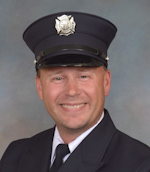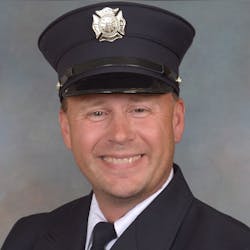Riding shotgun means much more than just riding the right front seat. Understanding strategy and tactics is important, but it is only one part of being a successful fire officer. Responding to fires is a critical part of the job, but what happens after the fire is out? What about the other 95 percent of the time that they didn’t tell you about on the promotional announcement?
Many firefighters believe that once promoted their learning stops: They got the promotion, what else do they need to know?
Learning & educating
Most fire departments have a minimum number of in-house training hours that must be completed every year. Although this is important for honing already learned skills, the learning that I am talking about involves getting outside of your local area.
Attending classes at the National Fire Academy (NFA)—classes that are designed specifically for officers and chiefs to prepare them for the challenges of their position—is an experience like no other. That said, to me, the best part of the NFA is meeting others who are from around the country who share the passion for learning.
National conferences, such as Firehouse Expo, also provide excellent opportunities for networking and learning new skills and techniques.
When you become a fire officer, your learning is a journey, not a destination.
Then, there’s sharing knowledge.
For almost 240 years, the U.S. Army’s greatest resource has remained the individual soldier. Trillions of dollars are spent each year on research, weapons, technology, logistics, security and countless other combat multipliers, yet, simply put, the greatest resource and the decided advantage over U.S. enemies remains the soldiers who enlist and follow their leaders with loyalty and commitment. As Master Sgt. Leslie Renken wrote in “Mentorship: Understanding a Leader’s Investment,” “As leaders we must ‘invest’ in our soldiers, continually developing and growing them into leaders themselves who will someday serve as our next generation of great leaders and ‘mentors.’” This is the exact same thing chiefs and officers who are in the fire service should do for firefighters.
Lead from the front
Fire officers should possess many leadership traits—competence, integrity and leading by example, among them. In my experience, competence is one of the most important traits that a leader can have. Competence is needed on the fireground for successful outcomes. Officers also need to be competent in administrative duties. A lot of time is spent filling out incident reports, training reports and daily activity sheets.
Although there are many styles of leadership, I find that servant leadership, or putting others before yourself, is the best. This means more than just saying that you care about your crew. It means being involved in their life outside of the fire station as well as inside of it.
As a fire officer, it’s your job to lead from the front, and that means learning from national organizations. The Courage to be Safe and the Taking Care of Our Own programs are staples of the National Fallen Firefighters Foundation, and the Fire Hero Learning Network delivers critical safety, operations and community relations fire service training, from the line firefighter through to command and leadership.
As fire officers, you must champion such programs within your departments.
Riding shotgun means so much more than just riding the right front seat. It’s so much more than strategy and tactics. Treat people as you want to be treated. Be honest and respectful to everyone. When riding the right front seat, you are the tip of the sword, so to speak. Your actions as the officer in charge regardless of the incident demonstrates your competency and that of the department to the community that you and the department are sworn to protect.
Timothy Cowan will present “Riding Shotgun” at Firehouse Expo. To register, visit firehouseexpo.com.

Timothy Cowan
Timothy S. Cowan is a deputy fire chief with the Dewitt Fire District in central New York and a 32-year veteran of fire and emergency services. He recently retired as a deputy fire chief/fire marshal with the City of Oneida, NY, Fire Department. Cowan also is a volunteer firefighter with the Canastota, NY, Fire Department. He is a deputy fire coordinator and fire instructor for Madison County, NY, Office of Emergency Management. Cowan is completing the Executive Fire Officer Program at the National Fire Academy. He earned an associate degree in fire and emergency services and a bachelor’s degree in fire and emergency management, both from the SUNY Empire State College.






